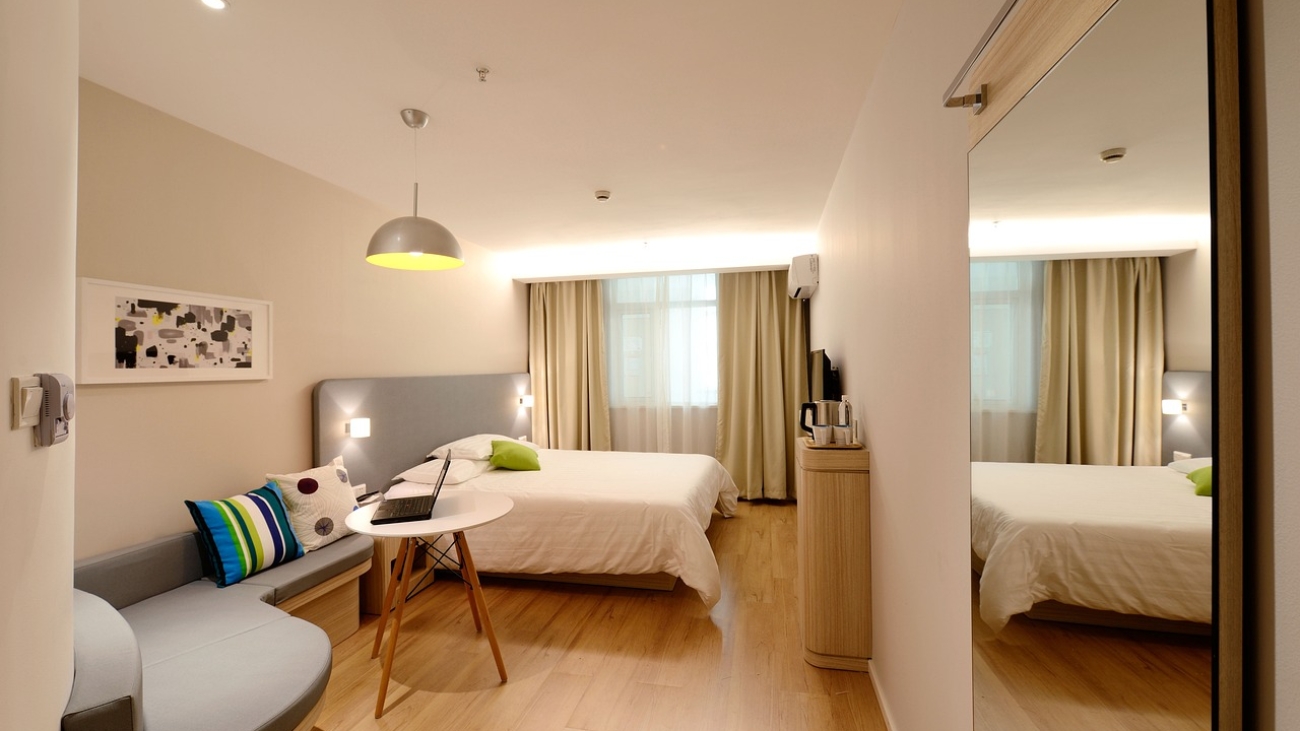In today’s digital age, social media is more than just a platform for socializing—it’s a powerful tool for driving business, especially in the highly competitive hospitality industry. For hotels, social media marketing offers a unique opportunity to connect directly with potential guests, build brand awareness, and ultimately boost bookings.
But how do you leverage social media effectively to increase hotel reservations? In this blog post, we’ll explore the key strategies that can help your hotel harness the power of social media marketing and turn online engagement into tangible bookings.

Why Social Media Matters for Hotel Marketing
Before diving into strategies, it’s important to understand why social media is such a powerful tool for hotels. Consider these facts:
- Reach & Visibility: Social media platforms like Instagram, Facebook, TikTok, and X (formerly Twitter) offer billions of active users worldwide. These platforms give hotels an unparalleled opportunity to reach potential guests from different parts of the world.
- Influence on Travel Decisions: According to studies, nearly 50% of travelers rely on social media for travel inspiration. Visual content, user-generated reviews, and influencer endorsements play a significant role in shaping guest decisions.
- Direct Booking Opportunities: Social media platforms are increasingly integrated with booking options, making it easier for users to go from discovery to booking in just a few clicks.
- Brand Loyalty & Community Building: Social media allows hotels to engage with past guests and build a community of loyal followers who not only book but recommend the hotel to others.
Given these advantages, it’s clear that a strong social media strategy can lead to increased direct bookings, improved brand visibility, and stronger relationships with guests.
Create Visually Stunning Content
In the hospitality industry, images speak louder than words. Hotels are primarily selling experiences, and the best way to communicate that is through high-quality, visually captivating content. Whether it’s a photo of your hotel’s beautifully designed rooms, your signature cocktails at the bar, or the stunning views from the rooftop, your content should showcase the unique aspects of your property.
Tips for visually appealing content:
- High-quality Photography & Video: Invest in professional photography and videography that highlight the best features of your hotel. Drone shots, 360-degree room tours, and behind-the-scenes clips can be particularly engaging.
- User-Generated Content (UGC): Encourage guests to share their own photos and experiences on social media. Reposting UGC not only gives your hotel authenticity but also builds trust with potential guests. Run hashtag campaigns or photo contests to incentivize guests to share their stay.
- Stories & Reels: Use features like Instagram Stories, Facebook Stories, and TikTok to give followers a glimpse into the daily life of your hotel. Post time-limited offers, new amenities, or local events to keep your audience engaged.
Goal: Create content that transports potential guests into the experience of staying at your hotel, making them visualize themselves at your property and encouraging them to book.


Engage with Your Audience
Social media is a two-way street, and it’s crucial for hotels to engage with their audience rather than just post content and wait for results. Interacting with followers humanizes your brand, builds trust, and fosters a sense of community.
Ways to engage with your audience:
- Reply to Comments and DMs: Respond to inquiries, comments, and direct messages promptly. Whether it’s a question about room rates or a compliment on your hotel’s decor, acknowledging these interactions shows that you care.
- Run Polls and Surveys: On platforms like Instagram or Twitter, use polls or surveys to engage your audience. You could ask questions like, “What type of room view do you prefer?” or “Which local attraction are you most excited to visit?”
- User-Generated Content & Testimonials: Repost or feature guest reviews, photos, and videos to create a sense of community and authenticity. Guests love to be featured on the hotel’s official account, and it helps build social proof for potential bookers.
Goal: Foster a sense of connection and community with your followers. Engaged audiences are more likely to trust your brand, recommend your hotel, and, of course, book a stay.
Leverage Influencer Marketing
Influencer marketing has become one of the most effective ways to promote a hotel. Partnering with travel influencers or local influencers with an engaged following can help amplify your reach and create authentic content that resonates with their audience.
How to leverage influencer marketing:
- Choose the Right Influencers: Partner with influencers who align with your hotel’s values, target demographic, and location. For instance, a luxury hotel might collaborate with high-end lifestyle influencers, while a boutique hotel may team up with local travel bloggers or micro-influencers.
- Offer Experiential Stays: Instead of simply paying for a post, offer influencers an experience at your hotel, such as a complimentary night’s stay, a spa treatment, or a culinary experience at your restaurant. The more unique and personal the experience, the better the content they’ll create.
- Track ROI: Always track the performance of influencer campaigns using unique promo codes or custom booking links. This allows you to measure how much influence the campaign had on actual bookings.
Goal: Tap into the influencers’ audience to extend your reach, build brand credibility, and encourage bookings through authentic and relatable content.


Promote Special Offers and Packages
Social media is an excellent platform to promote exclusive deals, special offers, and limited-time discounts. The urgency of limited-time offers combined with the direct access to booking links can drive conversions. A well-timed promotion can make a significant difference in your booking numbers, especially during off-peak seasons or special events.
Tips for promoting offers:
- Exclusive Social Media Deals: Offer social media followers exclusive discounts or packages they can’t find anywhere else. Promote these deals on your social channels, such as “Book through this link and get 15% off your stay!”
- Seasonal Promotions: Create tailored promotions for holidays, long weekends, or local events. For example, offer a Valentine’s Day special or a “staycation” deal for local residents.
- Countdown Timers & Flash Sales: Create a sense of urgency by promoting flash sales with countdown timers. For example, a “24-Hour Flash Sale: Book Today and Save 20%” campaign can spur quick action.
Goal: Encourage immediate bookings by offering time-sensitive deals and promotions. Social media’s real-time nature makes it ideal for showcasing limited-time offers.
Utilize Paid Advertising to Boost Reach
While organic posts and engagement are important, paid social media advertising allows you to significantly expand your reach and target potential guests who may not yet know about your hotel. Platforms like Facebook, Instagram, and TikTok offer advanced targeting options that allow you to reach people based on location, interests, demographics, and past behavior.
How to use paid advertising effectively:
- Targeted Ads: Use Facebook and Instagram’s advanced targeting options to run ads tailored to specific audiences, such as people who have recently traveled to your location or users who have shown interest in similar hotels or experiences.
- Retargeting Campaigns: Use retargeting ads to reach people who have visited your website or interacted with your social media posts but haven’t yet booked. These ads can be highly effective in converting window-shoppers into guests.
- Video Ads and Stories: Video content performs well in social media ads. Showcase your hotel’s best features, rooms, and amenities in short, engaging video ads or Instagram Stories.
Goal: Extend your reach beyond your existing audience, increase brand awareness, and drive more direct bookings through targeted, cost-effective social media advertising.
Track Performance and Adjust Your Strategy
The beauty of social media is that it offers detailed insights and analytics, allowing you to track the success of your efforts. Use these insights to understand what content resonates with your audience, what types of ads perform best, and which platforms generate the most bookings.
Key metrics to track:
- Engagement Rate: Monitor likes, comments, shares, and click-through rates to assess how engaging your content is.
- Booking Conversion: Track how many people book a stay after interacting with your social media posts or ads.
- Reach and Impressions: Keep an eye on your post reach and impressions to see how well your content is spreading across your audience.
Goal: Continuously optimize your social media strategy based on performance data to improve engagement, increase conversions, and maximize ROI.






